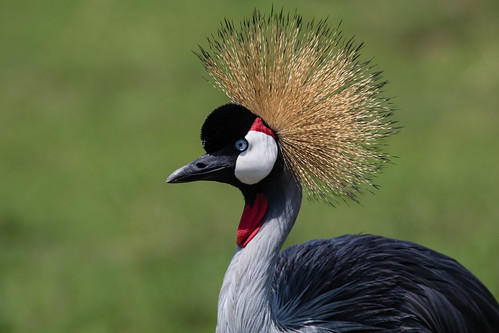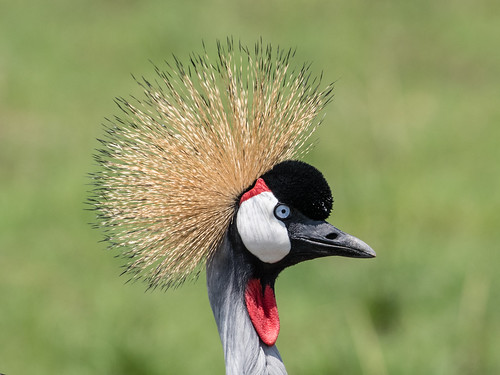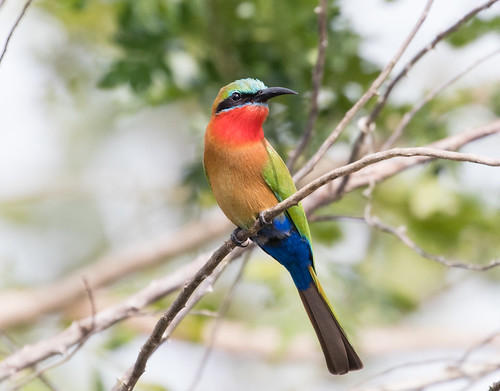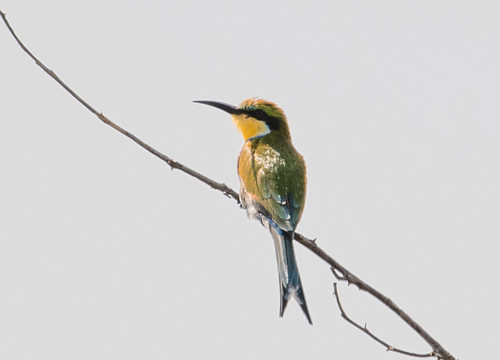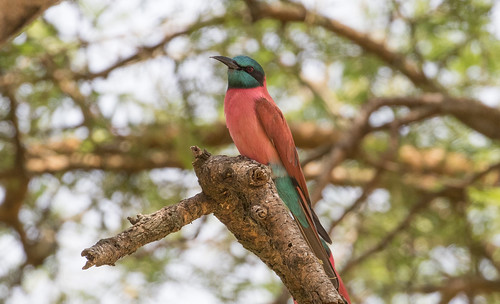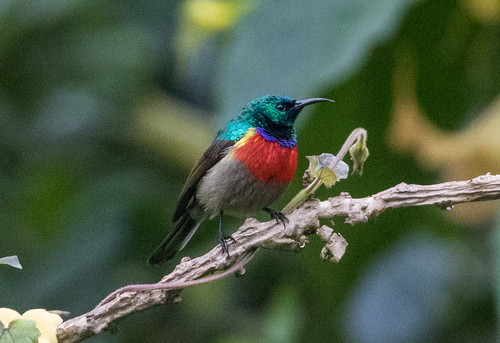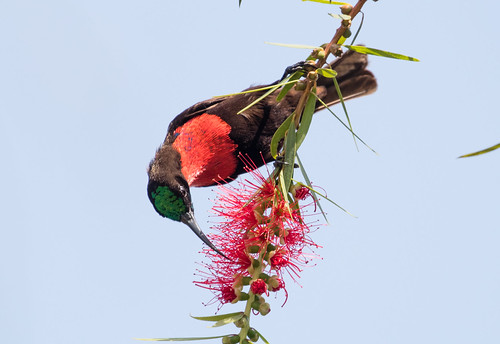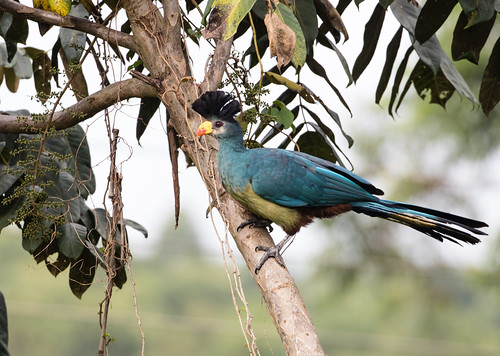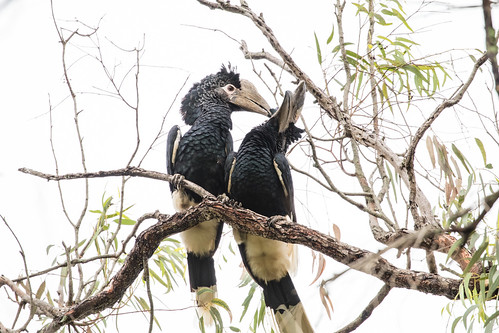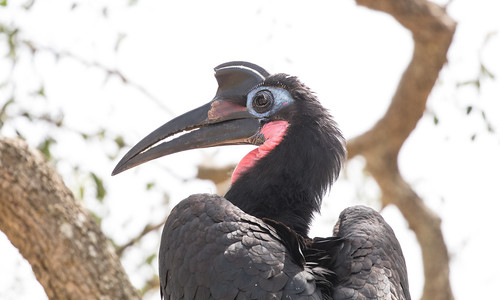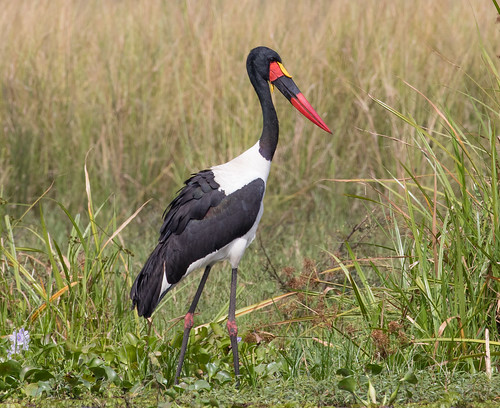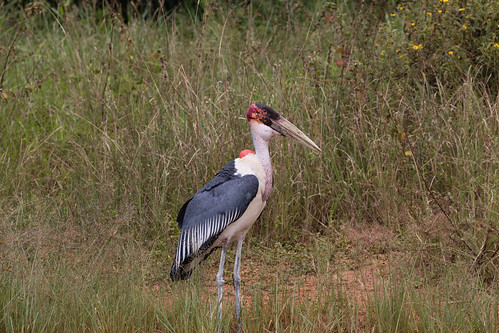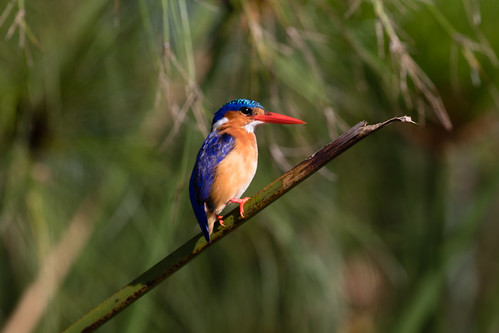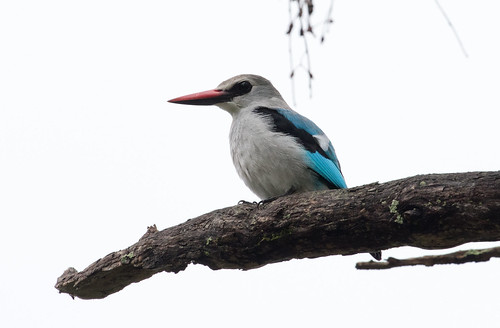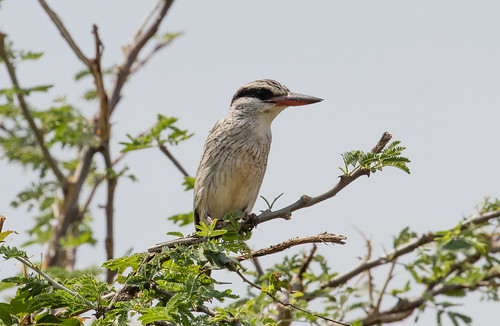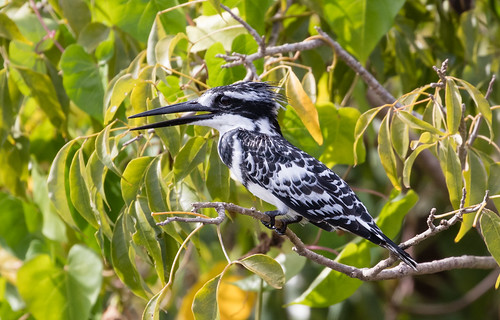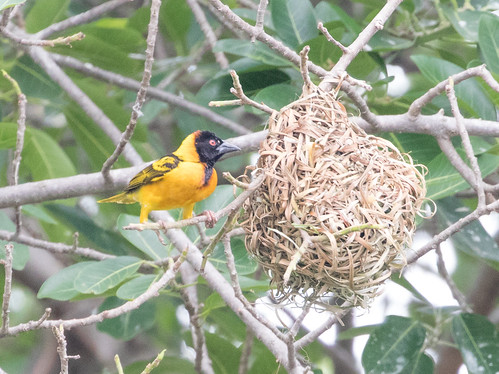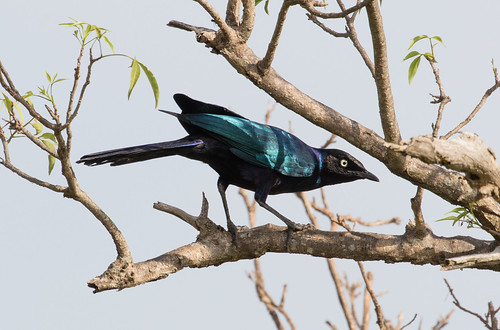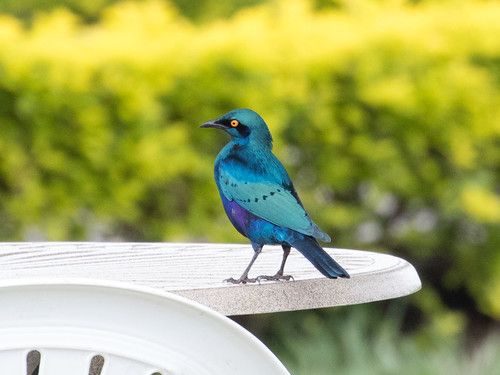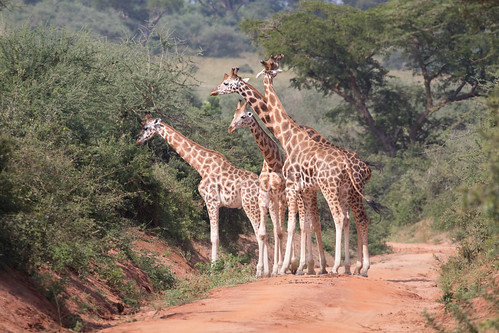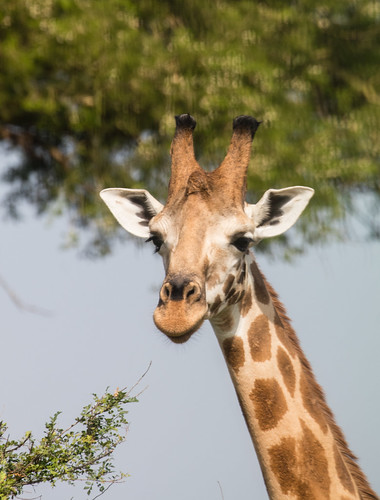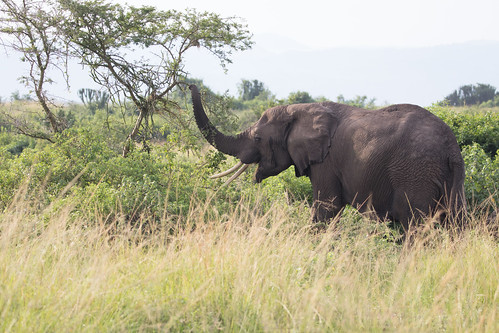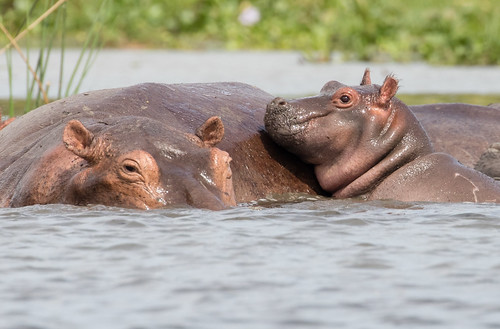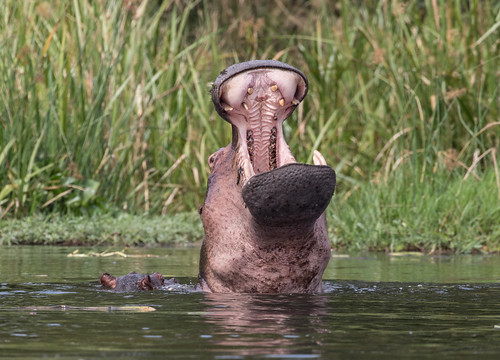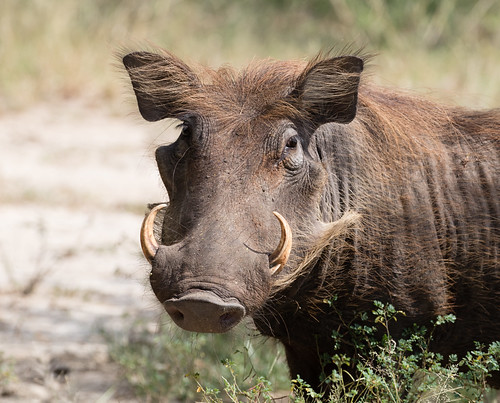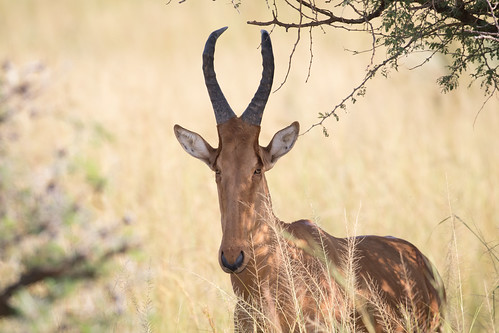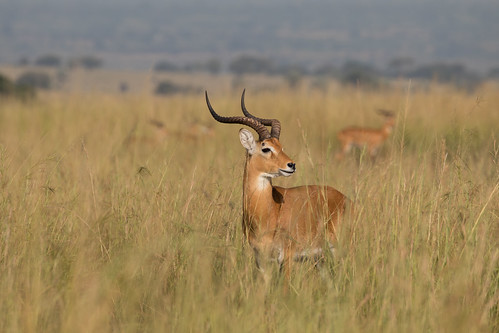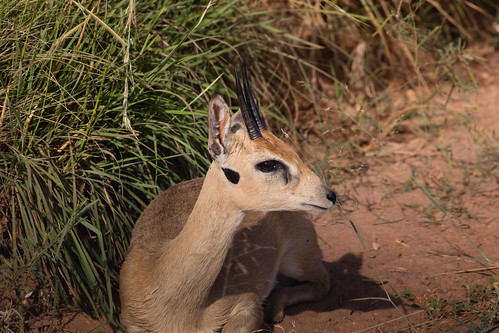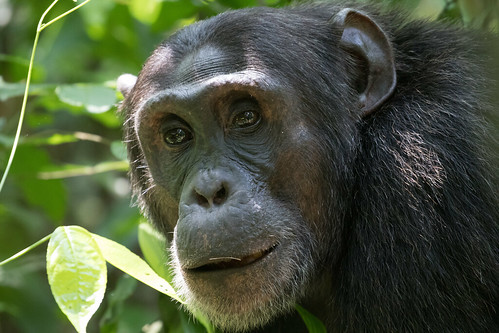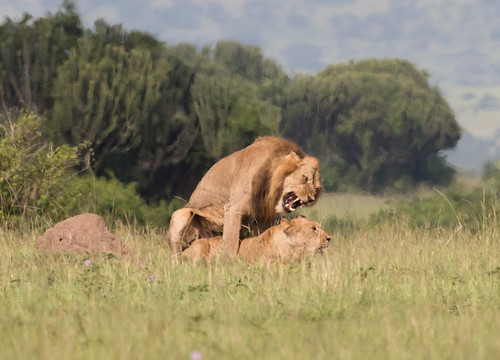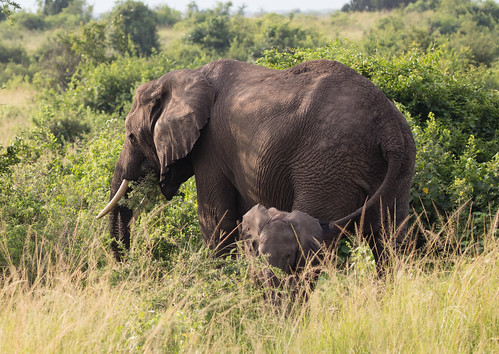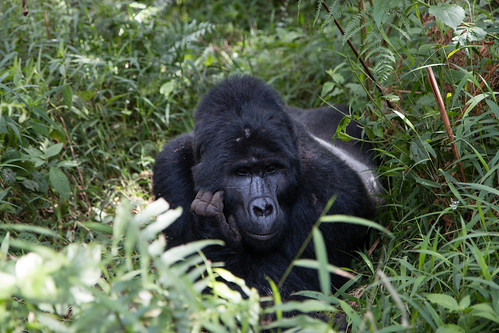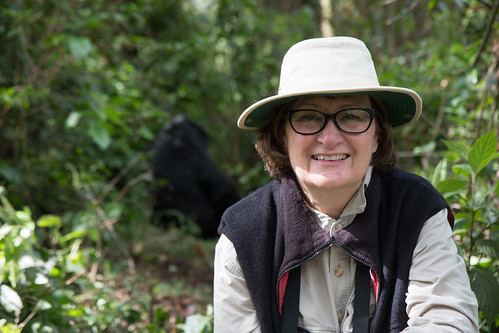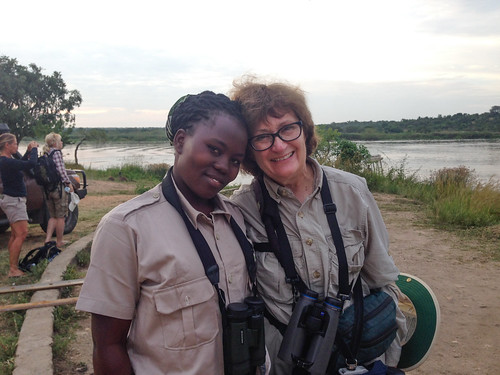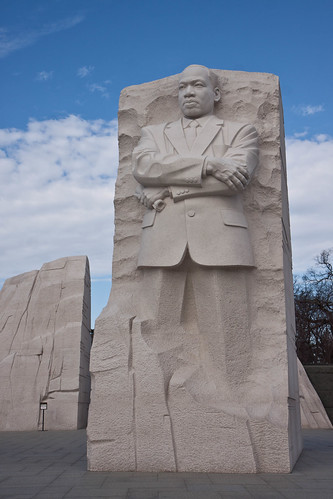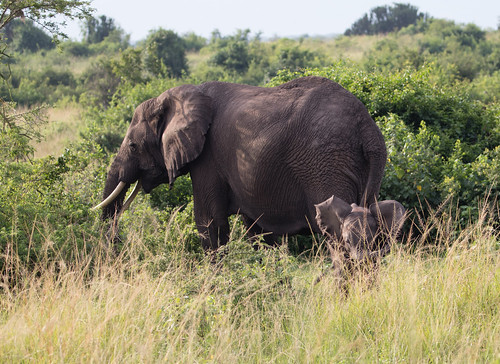A little more than a year ago, I spent two weeks in the Pearl of Africa—what the President of the United States has proclaimed a “shithole.” Uganda may be poor in terms of economics, which for the past few centuries have been measured in how successfully some countries and their corporations can exploit other countries and natural resources. The Americans in power right now consider economics in terms of short-term gains for themselves and the wealthiest people and corporations in the world, never in terms of long-term sustainability, how clean the air and water are, how robust and sustainable wildlife populations are, or how happy and healthy the poorest people are.
While I was in Uganda, I got to see firsthand that although most of the people in Uganda are tragically poor, they are hardworking and generous spirited, and the country has a wealth of natural resources. We spent part of the time in meetings, and could only briefly sample the wildlife in most of the places we stopped at so we could cover more ground. But wow! The golden crown atop Uganda’s national bird sparkles with a warmth and delicate beauty that mere metallic gold could never achieve. These crowned cranes are often kept in captivity—I saw my first at the International Crane Foundation in Baraboo, Wisconsin—but only in eastern and southern Africa do they live free in the spectacular natural environment they evolved in.
I saw hundreds of new birds I could never have seen wild in the United States nor anywhere else in the world except the place that our President thinks is a shithole—I gloried in a rainbow of bee-eaters and sunbirds,
stunning turacos and hornbills,
storks and kingfishers,
weavers,
and starlings.
We saw well over 400 species of birds. And mammals! I never dreamed that I would ever be able to see giraffes,
elephants,
hippos,
or warthogs in the wild.
Just the variety of ungulates—hartebeests,
kobs,
and oribis
amazed me. And what was more thrilling: seeing oxpeckers riding on the backs of African buffaloes,
coming upon a glorious adult chimpanzee,
seeing a pair of lions mating,
or watching a mother elephant tenderly care for her week-old baby?
I even spent my 65th birthday at Bwindi National Park’s Impenetrable Forest with a group of Mountain Gorillas!
Beyond the amazing wildlife, the best gift of that trip was the time I spent with Ugandan people. The two guides I spent the most time with and got to know the best were two lovely young people, Nanyombi Proscovia and Denis Arineitwe. Their brilliance and generosity, sharing their knowledge with warmth and kindness, marked them as truly rich in ways that a president with a shriveled, impoverished soul could never be.
 |
| Denis Arineitwe, Crammy Uganda Wanyama (I didn't spend much time with him), and Nanyombi Proscovia. |
The same president who called Haiti and Africa shitholes keeps talking about making America great again. But what time is he talking about? I went to a conservative Catholic elementary school starting in 1957, at the peak of that mythical post-war era when many Americans think America was supposedly at its greatest. What we were taught throughout my education, and what was reinforced over and over in our Faith and Freedom reading series, was that wealth is measured not by what we have but by how much we freely give to others. In first grade, one story that stuck with me through my entire life was about a little girl named Ann. For Christmas, her only present was a beautiful doll wearing a fancy white dress trimmed with red ribbons.
Her teacher told the children they could bring their new toys to school for a day, and Ann of course brought her doll. One little girl hadn’t received any toys and Ann let her play with the doll. That night, both her father and her mother suggested that she give her doll to the other little girl. Ann said she’d be happy to give her one of her old dolls, but she couldn’t bear to part with her precious new one. But she was unhappy about this, and the next day, she gave the doll to the other little girl. Now Ann felt a joy that owning the doll had not given her. She felt wealthier without her new doll than she had when she had it. Her sacrifice was difficult—kindness and generosity are measured in part by how much we sacrifice to do the kind, generous thing.
As a first grader, I worried a lot about whether I could ever be that generous with my own possessions, but what Ann did was clearly the way we were supposed to be. Materialism was frowned on in a school where most of the teachers were nuns who had taken a vow of poverty and even our lay teachers were paid at barely above the poverty level. We were taught that the value in work had nothing to do with the pay.
We had a few nuns who were on the cruel side, and one of the priests who arrived at my school when I was in sixth grade turned out to be one of the Chicago Archdiocese’s worst sexual predators on boys, but overall, the teachers I got to know well were some of the happiest, most fulfilled adults I ever knew. At that time, one of the greatest American heroes we knew of was Jonas Salk, who developed one of the polio vaccines that saved millions of lives. He used his brilliance in service to this seminal research, not to enrich himself—he gave away the patent for his vaccination to the American people. Nowadays, the mindset with medical research corporations isn’t to save lives—it’s to command the highest prices for drugs, and to encourage people to buy them even when they don't need them. In this way, since the 80s, shareholders and CEOs have been hoarding increasing amounts of America’s financial wealth. They may think they’re rich, but not one of them will ever amass the wealth of Jonas Salk, who understood that wealth is measured in what you can afford to freely give away.
Many of our heroes in the 50s and 60s were government workers, from astronauts and NASA engineers to public health researchers trying to end polio, smallpox, and other horrifying diseases. My husband, one of the most brilliant people I’ve ever known, is a career scientist for the Environmental Protection Agency. He would have amassed far more money over his career had he gone with one of the companies that were recruiting back when he got his Ph.D.—the companies that profit by cutting corners when it comes to cleaning up their environmental messes and try to minimize public awareness of the dangers of the chemicals they produce. Russ and I both believed that job satisfaction comes from making the world better for everyone. He attended a Methodist church and went to a public school, so he wasn’t influenced by anyone who had taken a vow of poverty. But that conservative America of the 50s and 60s—the America of Jonas Salk and astronauts and Rachel Carson and Martin Luther King, Jr,—taught us that real wealth cannot be measured in dollars. We memorized the Declaration of Independence that declared that all men are created equal, and we both said the Pledge of Allegiance to the flag every morning, affirming that America stands for liberty and justice for all. America may not have been living up to those beautiful principles then, but President Kennedy, in creating the Peace Corps, promoting civil rights, and talking about getting us to the moon, taught us how to dream in ways that did not encompass financial riches. Imagine Kennedy referring to any country on this planet as a shithole!
I’m reading Michael Wolff’s book, Fire and Fury, right now. In it, he quotes Donald Trump talking about Sally Yates, a career Justice Department lawyer who temporarily served as Acting Attorney General. Trump asked why she, or anyone, would want to be a permanent government employee. Wolff quoted him: “’They max out at what? Two hundred grand? Tops,’ he said, expressing something like wonder.” How much wonder did he feel as a boy learning about Jonas Salk giving away a patent that could have been worth many millions?
Money may be the measure by which shady New York real estate giants, casino owners with mob connections, and scurvy politicians appraise themselves and their holdings, but it isn't the way good people measure our fellow human beings or the beloved creatures with whom we share this planet. For Donald Trump to call Haiti and Africa—the homelands of so many worthy human beings and wildlife treasures—to call these places "shitholes" took more than his everyday ignorance and meanspiritedness. This filthy word diminished our entire nation. We Americans, each and every one of us, are responsible for the words and actions of our elected leader, this hollow man with his shriveled, impoverished soul.
